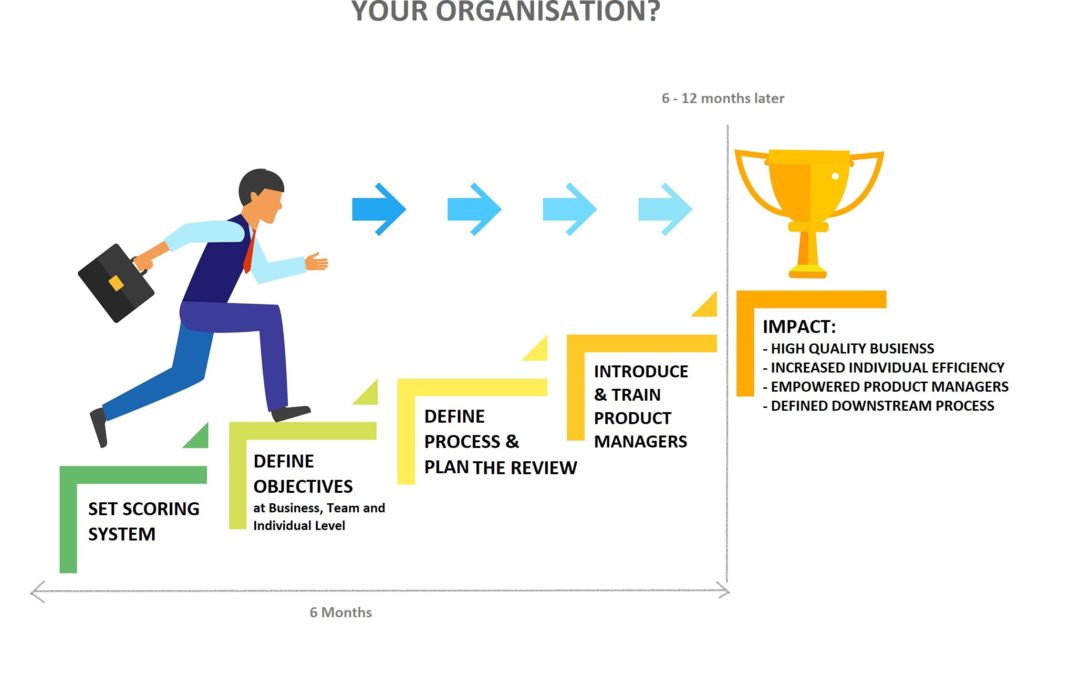Although some may believe peer review is a practice reserved for academic or scientific communities, I believe it is a valuable tool in product management.
Peer review is about quality—a structured approach to understanding whether or not your ideas fall into the category of worthwhile, meaningful or correct, and the benefit of colleagues evaluating product requirements and definitions.
Recently I helped two companies implement peer review. One had reviewed quality statistics and found that a high percentage of the product manger’s requirements were being rejected by development downstream. To fix this, they wanted to organize their product managers so they could review each other’s work in a non-hostile or threatening way. With peer review, the team could quickly assess and develop an acceptable requirement in a standard way.
Last year, a second company faced a similar problem. We found that some product mangers were already following a review process to ensure their projects were completed quickly.
In either case, these companies developed a standard requirement definition—a standard set of requirements each product had to meet to move on to the next stage.
These companies had six elements that also demonstrate best practices:
- Completeness
- Unambiguous
- Verifiable – is the product possible, testable?
- Market Verifiable – is there a market need for it?
- Cohesive
- Traceable
We added a scoring system to make it as objective as possible—starting from “fully meets” ranging to “incomplete.”
Next, we defined objectives. We asked: What are you trying to do—for the business, team or individual level? For example, better consistency and high requirements are better for business and will increase efficiency while reducing project planning and efficiency helped the entire team.
Once the peer review process was defined and introduced to the teams, we trained more than 100 product managers on what peer review was, how to conduct a session, and included a mock session so product managers could see the process work in action.
All of this, from idea to implementation, took six months. Immediately we saw that the teams were using the review system. And while an upswing in quality isn’t immediately apparent (you will see that six months to a year later), you will see the process take hold and product managers gain empowerment by pushing back on those requirements that haven’t passed a peer review. Peer review also helps empower those working downstream, like development to technical support, giving them a vote in whether they should take on a plan or not. Finally, peer review helps people work better at an individual level.

m a sloppy worker, for example, and I hastily make a few notes and hand them to a designer, he then has to make sense out of my scribbles. If I don’t do a good job, it’s frustrating. Well, multiply that times 50 people and you have an organization filled with friction and frustration because there is no set of principles telling people what good looks like.
In peer review, you determine what “good” looks like and set objectives to evaluate that. Peer review gives structure to say this is ready to go to the next step or its not, and it only gets better when the work group holds each other accountable for their work.
These come together and manifest to higher quality for the business. People will feel better initially, start to do better jobs, and after that you’ll see that requirements have higher quality, ultimately making your products higher quality.
For managers, you now have a tool that evaluates your team on objective factors like contribution and overall effort based on the peer review.
Peer review is accepted in scientific industries and is based on the simple notion that one person doesn’t have all the answers. Peer review helps us share knowledge and expertise, and more importantly help define and present our ideas better, clearer and faster.
Frankly, it’s a concept that’s late coming to software but I think people are realizing that we need to collaborate, talk and communicate more and peer review is a way to do that.

What do you think? Let us know in the comments.

